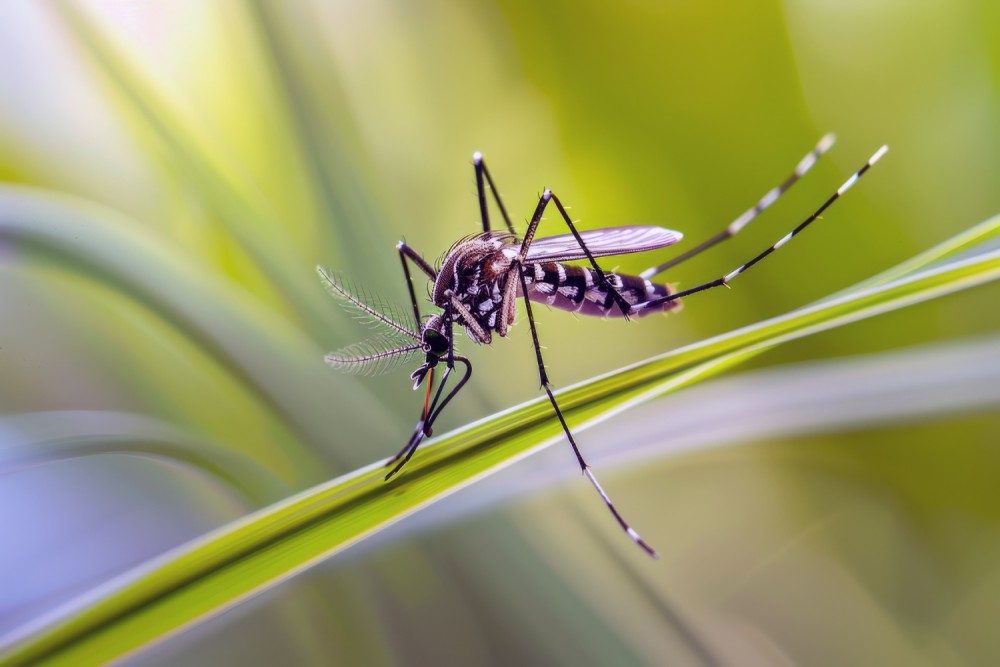
Best Pest Control Companies In Barrie
Choosing the best pest control companies in Barrie requires understanding local pest pressures, property types, and seasonal risks. Barrie’s colder
Call for a free estimate
Where are you located?

Share This Post
Identify signs of a mosquito infestation early, such as frequent mosquito sightings and itchy bites, to manage and control the problem with our expert mosquito control tips.
Have you noticed frequent mosquito sightings inside your house? Hearing the constant buzzing sound of mosquitoes regularly may indicate their presence. Persistent mosquito annoyance, especially at night when they are most active, is another sign to watch out for.
Early signs of a mosquito infestation include frequent mosquito bites, leading to itchy welts on your skin, often in clusters. Observing excessive mosquito swarms around your home or noticing indoor mosquito activity are critical indicators. In addition to the physical bites, being aware of any increase in itching due to mosquito bites can be an early warning sign.
Yes, standing water can significantly contribute to mosquito infestations. Mosquitoes lay their eggs in stagnant water, creating breeding grounds for future generations. Common sources of standing water include clogged gutters, bird baths, and poorly drained areas in your yard. Regularly inspecting and eliminating these water sources can help prevent mosquito breeding and infestation.
Learn more: Mosquito Prevention in Canada: Effective Strategies for Mosquito Control and Disease Prevention and How to Keep Mosquitoes Out of Your Yard: Effective Tips and Solutions
Mosquitoes typically seek out humid and wet environments for breeding. Stagnant water in marshy areas, waterlogged zones, and even small containers with standing water can attract mosquitoes. These environments provide ideal conditions for the mosquito life cycle, where eggs can hatch and larvae can thrive.
Stagnant water plays a crucial role in mosquito breeding. Female mosquitoes lay their eggs in such water, and within days, larvae emerge. Thus, identifying and removing standing water sources around your property is essential for controlling mosquito populations. Regular inspections for water accumulation and proper drainage can mitigate these breeding grounds effectively.
Mosquito infestations pose health risks to people and communities. These tiny insects are more than just a nuisance; they can transmit diseases that lead to severe health conditions.
Mosquitoes are known for spreading many diseases. Some of the most common mosquito-borne diseases include:
These diseases show why effective mosquito control measures are essential.
Mosquito bites can affect your health in several ways:
The direct and indirect impacts of mosquito bites highlight the need for preventive strategies.
After a mosquito bite, watch for specific symptoms that might indicate an infection or allergic reaction:
Early detection and treatment of symptoms are critical for preventing complications. If you notice any concerning signs, seek medical advice promptly.
By understanding these risks and symptoms, you can better protect yourself and your loved ones from the dangers associated with mosquito infestations.
Detecting mosquitoes both indoors and outdoors is key to prevention and control. Look for frequent mosquito sightings and listen for their characteristic buzzing sound. Outdoors, check areas with standing water like ponds, birdbaths, or clogged gutters, as these are common mosquito hotspots. Inside homes, mosquitoes hide in dark, humid places such as bathrooms and basements.
To identify mosquito larvae, examine sources of standing water where mosquitoes breed. Look for small wriggling larvae in stagnant water, like ponds, rain barrels, or plant saucers. Knowing the mosquito lifecycle stages can help; larvae appear during the mosquito hatching season, usually in warmer months. Controlling mosquitoes effectively involves treating these water sources to stop larvae from becoming adult mosquitoes.
Yes, certain smells and sounds can indicate a mosquito problem. The persistent buzzing sound of mosquitoes is a clear sign of their presence, especially when heard near ears at night. While specific smells don’t directly indicate mosquitoes, stagnant water, which often has a distinct odor, can suggest mosquito breeding sites. Regularly inspecting and eliminating such water sources can reduce mosquito populations.
Managing mosquito infestations effectively requires a mix of preventive actions and quick responses. Knowing the lifecycle and behaviour of mosquitoes helps in planning successful control methods.
Stopping mosquitoes from breeding is key to controlling their population:
Regular yard upkeep can significantly reduce mosquito problems:
Mosquito infestations can be a real problem for health and safety. If you often see mosquitoes in your backyard or neighborhood, it’s a sign to seek help. Excessive mosquito activity around your home, especially during peak times, shows that regular measures might not be enough. People living in the City of Winnipeg, where mosquito outbreaks are frequent, should stay alert. Ongoing infestations can cause health issues, so getting a pro involved is essential.
Mosquito control experts offer various services to manage and lessen mosquito populations. They’ll use larvicides to target mosquito larvae and stop reproduction. They check thoroughly to identify breeding sites and harborage spots. Removing these sites is key for effective control. Moreover, experts provide preventive treatments for lasting relief. Their knowledge of control methods, backed by groups like Mosquito Man and government standards, ensures dependable results.
Long-term mosquito prevention needs a strategic plan. Pros tackle mosquito populations by addressing all life cycle stages, from larvae to adults. Identifying and removing stagnant water where mosquitoes breed is vital. Wearing protective clothing and using preventive medicine can also reduce risks. Regular checks and treatments help manage frequent mosquito sightings and prevent population spikes. By targeting hotspots and nests, experts can significantly lower mosquito swarms, making your environment safer. Health Canada and other authorities highlight these practices for continued mosquito control.

Choosing the best pest control companies in Barrie requires understanding local pest pressures, property types, and seasonal risks. Barrie’s colder

Preventive pest control in Windsor focuses on stopping infestations before pests ever enter the home. Instead of reacting to visible

Mon-Fri: 12:00 AM - 12:00 PM
Sat-Sun: 12:00 AM - 12:00 PM
Headquarters
2401-224 King St W,
Toronto, ON M5J 0A6, Canada
